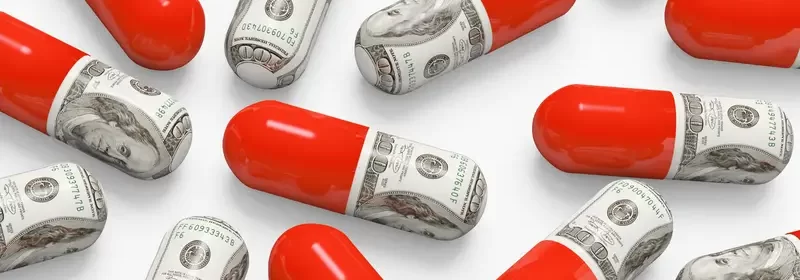Behind the Curtain: What Every Premed Should Know About Drug Prices (and Why It’s Not Just for Policy Majors)

DARSH PATEL –
Drug costs in the U.S. aren’t just a policy problem – they’re a patient problem. And while most premed students are laser-focused on mastering chemistry classes, shadowing doctors, and studying for the MCAT, there’s an entire layer of the healthcare system that we’re rarely taught to think about. It’s invisible but critically important: the economics behind the pills we prescribe.
Some key players that shape our current healthcare landscape are pharmacy benefit managers (PBMs), insurance giants, and pharmaceutical companies. PBMs, for those unfamiliar, act as intermediaries between drug manufacturers, insurance providers, and pharmacies. Their role is supposed to be to negotiate better drug prices. PBMs like CVS Caremark, OptumRx, and Express Scripts, control nearly 79% of the market and often profit through hidden fees and rebates that don’t necessarily benefit patients. The situation gets worse when you realize that many PBMs are owned by insurance companies: according to Yahoo Finance, OptumRx is owned by United Healthcare, and Express Scripts is owned by Cigna and this integration removes incentives to lower costs and denounces accountability.
Meanwhile, drug manufacturers are playing a long game. U.S. law grants a 20-year patent to new drugs, which theoretically allows companies time to recover their research and development investments. But many companies use legal loopholes to slightly tweak a drug’s formula, without changing its therapeutic effect, to renew the patent and prevent cheaper generics from entering the market. This tactic, referred to as “evergreening” by this article by published in the Canadian Medical Association Journal, allows brand-name drug makers to hold onto market dominance far longer than originally intended.
The result is a system where medication prices continue to climb, not because the drugs are better or newer, but because corporate structures and outdated legislation allow it. For patients with unfavorable economic statuses, this means choosing between medication and rent. For doctors, it means writing prescriptions you know your patient might not be able to fill. And for premed students like us, it raises a critical question: if we want to be the kind of physicians who advocate for our patients, when do we start paying attention to these issues?
The good news is that you don’t need to be a policy major to make a difference. Start small. Learn the terminology. Understand what PBMs do, how insurance companies structure their plans, and what patent protection really means. The Brookings Institute offers a helpful background on current debates about PBMs and why simply capping their profits might not solve the problem. When you’re shadowing or volunteering in clinical settings, ask providers how they deal with patients who can’t afford medications. You’d be surprised how often these challenges shape current health care.
Consider getting involved with policy-focused student organizations at UGA like Arch Policy Institute or even starting one that specifically targets these issues. You don’t need to draft legislation, but you can educate others, write about these issues, or bring speakers to campus. Follow health policy journalists, read articles that explore the human side of drug pricing (an article to get you started), and include your interest in healthcare reform in your medical school applications. Schools increasingly value students who can think beyond the basic, school-taught facts and advocate within the system as well as within the clinic.
As future healthcare professionals, we won’t just be treating symptoms, we’ll be navigating and understanding our healthcare systems better. Understanding the forces behind drug pricing is part of preparing ourselves to advocate for our future patients. The best part? You’re already ahead of the game just by asking questions.
Copy Editor: Sameeka Prabath
Photography Source: https://www.businessinsider.com/pfizer-drugmakers-to-increase-drug-prices-in-2019-trump-tweet-2018-12
